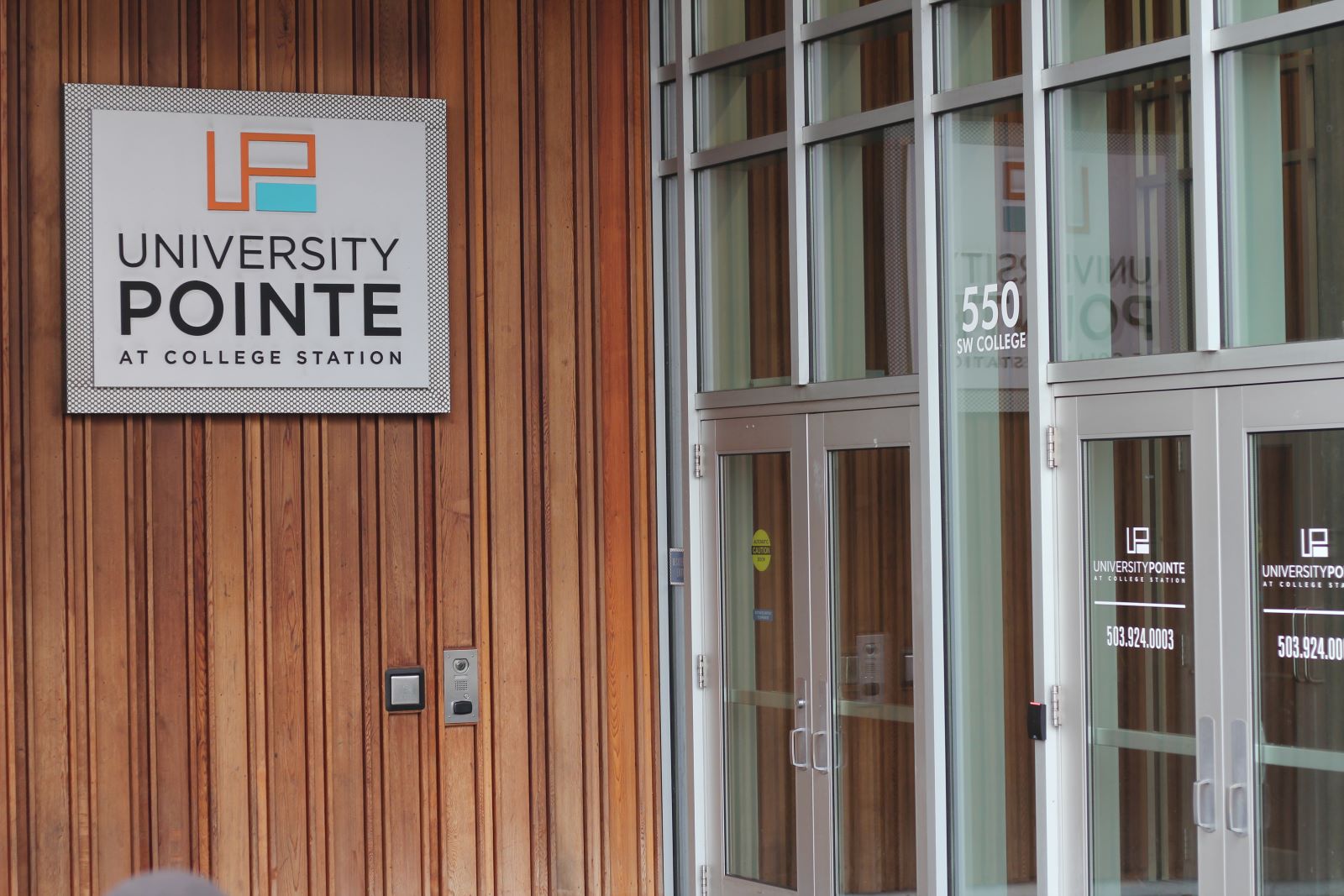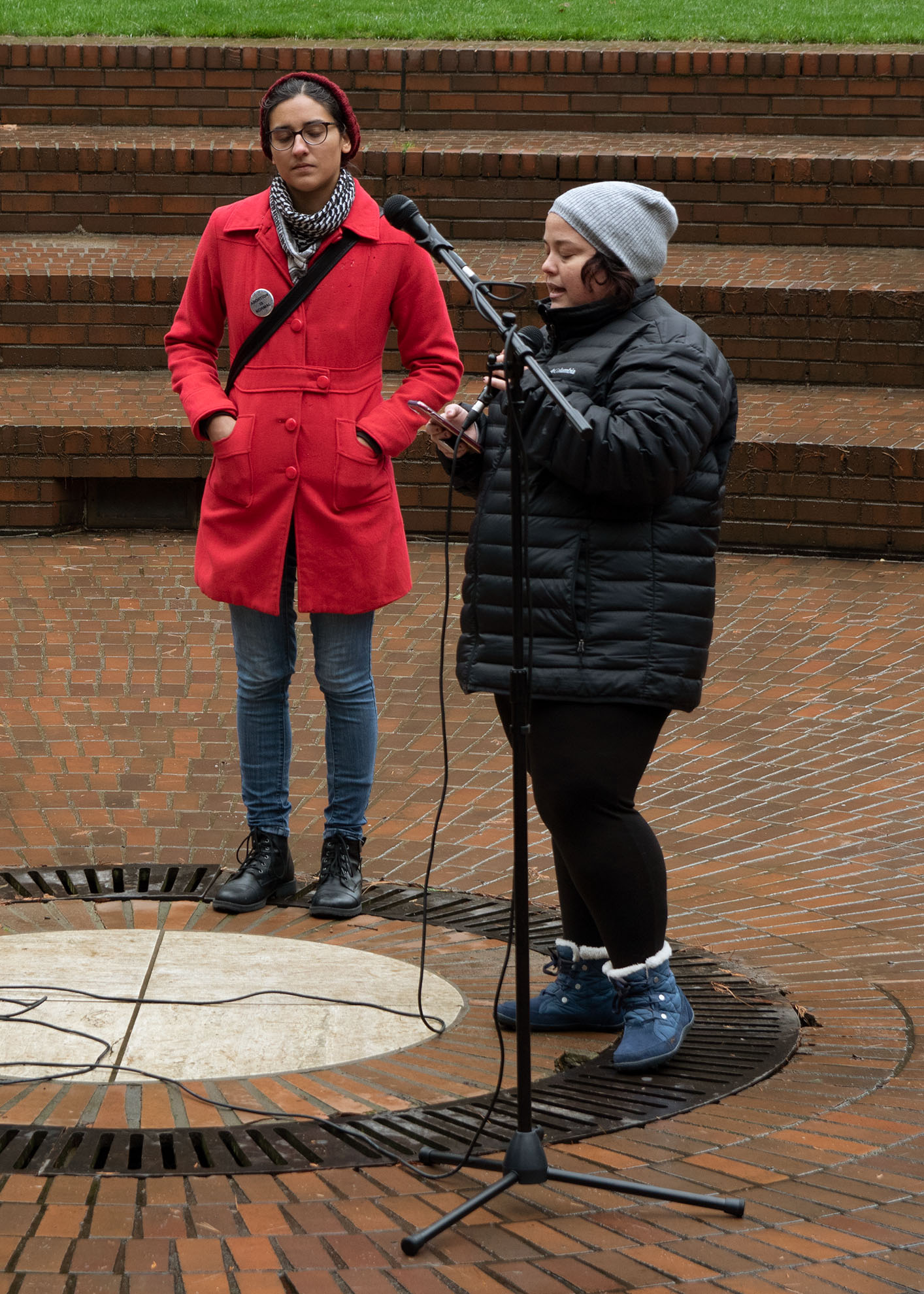Black studies offering major
After years of struggle, the black studies department at Portland State University is closer to offering a black studies major in the College of Liberal Arts and Sciences.
Having had their proposal reviewed and approved on levels including a unanimous vote by student senate, department faculty members are optimistic about the continuing review process and hope to announce approval of the black studies major by summer term 2003. In anticipation, faculty members have been advising students who now hope to major in black studies, as well as helping to transition those who have already partially fulfilled either minor or certificate requirements.
Many members of the PSU community are hoping that the department will have cause for celebration in the months to come, said Dr. Darrell Millner, professor of black studies. The celebration will include an announcement of final approval to the PSU community as well as to the wider community around Portland, he explained.
A long-awaited event, approval of the black studies major at PSU will put an end to more than 30 years of struggle, Millner said. He explained how, in resistance to the European-oriented curriculum in places of higher education during the mid-1960s, students began to demand diversity, prompting many universities to adopt a more varied approach to education despite opposition from some scholars.
“At PSU, students wanted a black studies department and a major, but the status quo wanted things to stay the same,” Millner said. “They compromised on a program and certificate instead of a department and a major. Neither side got what they wanted.”
In the years following, the black studies program has been granted department status and now offers a minor, though acquiring major status has always been the end goal of the department, he explained. Millner stressed that PSU students are largely responsible for the success of the black studies department.
“Momentum behind black studies becoming a major was due to the organization of students,” he said. “They contacted fellow students, lobbied and worked with student organizations.”
Support from other departments has also aided in the expansion of the department, said Dr. Kofi Agorsah, black studies professor and chair.
“Cooperation has been forthcoming, and the other departments have been advising us,” he said. “We’re hoping they stay with us until the end.”
Agorsah explained that now is definitely time for the department to expand.
“Students have complained and asked for the major, while we have been tacked onto other departments,” he said. “It’s time for separation, to give students the opportunity to study what they want, bring black studies into the mainstream, and open up the department to other students.”
Exposure to diversity in the classroom is essential for every student at PSU, Miller explained. The black studies department intends to continue educating the campus community about mistruths in U.S. history that continue to be taught.
“Education has often served the interest of select groups, and has been used to prove the inferiority of blacks,” Miller said. “Black studies is an antidote to the tradition of miseducation, and is for anyone who is interested in understanding the truth about the past and present. You could get a Ph.D. in U.S. history and still not know that nine presidents were slaveholders in the White House. You can’t understand our history without knowing that George Washington was a slaveholder.”
In addition to all courses within the department having been designed with the university’s diversity requirements in mind, PSU’s black studies department remains unique from those on other campuses for yet another reason, Agorsah said. Like most universities, PSU offers classes in both African studies and African-American studies, but what sets the program apart is its third option of specialization: Caribbean Studies, he explained.
“You can’t find that at other universities,” he said. “We include all of the Caribbean, including South America and Latin America. That opens up the program for international students, and gives students from many more places the opportunity to find something that fits them.”
It is this element of diversity that adds to the success of the department, and the availability of a major will further that success, Agorsah said. Millner looks forward to the opportunities that an available major will afford PSU students.
“Many students currently supplement a black studies minor with a major from another department,” he said. “This will allow students to get a double major instead, which we encourage and expect. That’s a distinct advantage to our students, both in the dynamics of what they learn, as well as the paperwork they take away with them.”
For more information regarding the black studies department, log on to www.blackstudies.pdx.edu.



